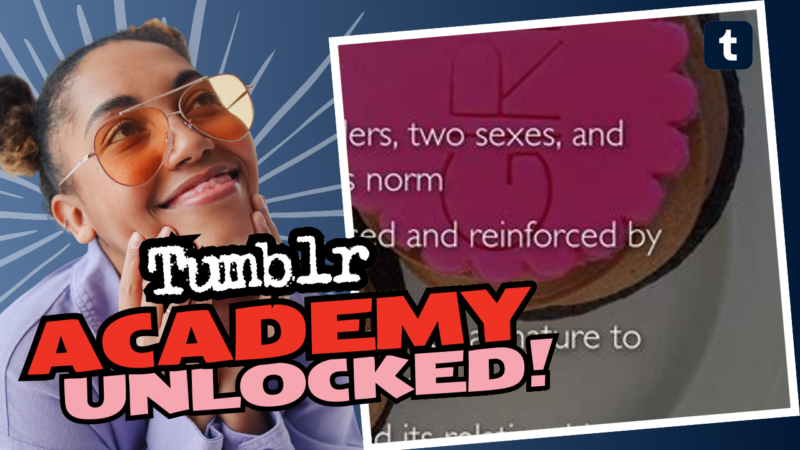The Tumultuous Terrain of Tumblr and the Misunderstanding of “Compulsory Heterosexuality”
If you’re wondering whether Tumblr’s cozy community has butchered the term “compulsory heterosexuality” – also known as “comphet” – buckle up, because the answer is a resounding yes! The confusion surrounding this concept is as messy as a spilled glitter jar at a craft party. Let’s dive in and unwrap this whole fascinating (and occasionally frustrating) situation, shall we?
First things first, let’s clarify what comphet actually means. Originally coined in an essay by Adrienne Rich, comphet describes the societal pressure on women to present as heterosexual, which can lead them to pursue relationships with men despite having no real attraction to them. This is more than just a fancy buzzword; it highlights the struggle and internal conflict many women face in a world that often shoves heteronormativity down their throats like an unwanted birthday cake.
However, here’s where things take a twist – somehow, the word “compulsory” has been swapped for “compulsive,” creating confusion faster than the latest TikTok dance challenge. This change implies a desire and urge to be with men, which literally makes no sense for someone who identifies as a lesbian! A lesbian who feels compelled to crush on men is not experiencing comphet but rather… you guessed it, bisexuality! 🙌
It’s beyond aggravating to see how the term has been co-opted and misrepresented, even leading to the belief that bisexual women can call themselves lesbians simply because they find fictional male characters attractive. Seriously, darling, can we tone it down? Just because you have a crush on Harry Styles doesn’t magically make you part of the LGBTQ+ community. 🙄
Let’s address this potential chaos over “celebrity crushes” too. Many women insist that liking a male celebrity somehow reflects their lesbian experience. But hold your horses! These are merely fantasies shaped by societal norms, and guess what? They don’t equate to genuine sexual attraction! It’s high time individuals separated fantasy from reality. Anyone suggesting otherwise probably needs a good chat about what true attraction looks like.
Comphet isn’t about questioning “Why do I like women?” That’s more about actual attraction. No, comphet is squarely about asking, “Why don’t I like men?” If someone claims to experience comphet but also expresses attraction to men, they might be a bit confused about their sexual identity.
Now, don’t get me wrong; the sentiment behind the term offers essential visibility and insight into societal pressures, but the way it’s been twisted has led to some major misunderstandings. So if you find a Tumblr user confused about their attraction towards fictional or celebrity men while identifying as a lesbian, graciously remind them that it’s completely normal to enjoy a show without needing to reassign their sexuality.
In conclusion, if you’re still scratching your head over whether Tumblr misuses heteronormativity – spoiler alert: it does, but there’s a bigger landscape of labels and identities to explore that can provide clarity. If you need further help or resources on whether Tumblr skews the discussion on comphet, feel free to connect with us!









